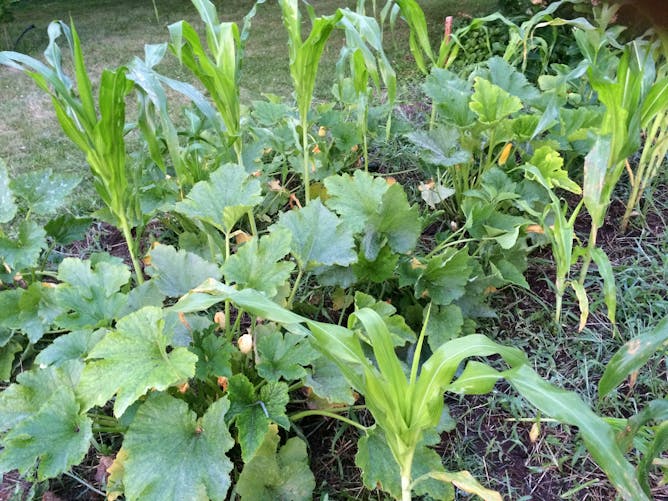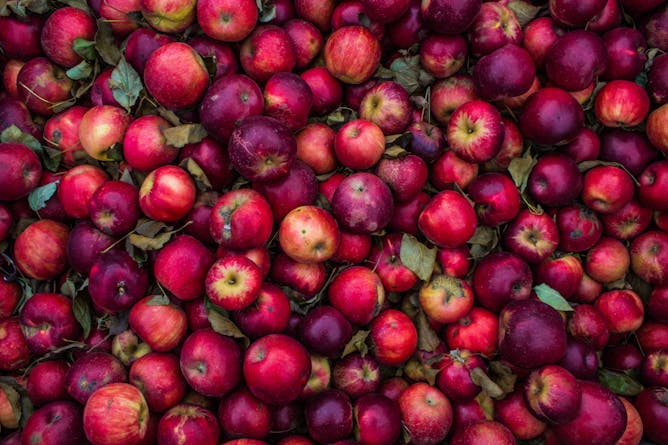|
I had my first pair of glasses in Grade 2. It’s lucky that smartphones and computers didn’t exist back then. Why? Well, today in The Conversation Canada, Langis Michaud of the Université de Montréal’s school of optometry explains that eye specialists are looking at the mounting evidence that a disturbing increase in myopia among young people can be explained by increased screen time. He also offers suggestions for parents on how to minimize the impact of myopia from screens.
That’s just one of several good reads we have for you this Wednesday:
And finally…will 2019 be the year of flexitarians or will cannabis edibles be the bigger story? We’ve got the latest on the University of Guelph’s newest Food Focus Trends Report, which highlights six key trends likely to be front and centre this year.
Regards,
|

Today’s young people don’t play outside as much as their predecessors and are heavy users of electronics.
(Shutterstock)
Langis Michaud, Université de Montréal
Myopia is a major risk factor for serious eye diseases. It has become epidemic among children, particularly because of their heavy use of electronic devices.
|

The West Moberly First Nation would like to see biodiversity-rich riparian areas in the Peace River Valley, in northeastern British Columbia protected. They will be destroyed by the Site C hydro dam, currently under construction.
Garth Lenz
Faisal Moola, University of Guelph; Jessica Lukawiecki, University of Guelph; Robin J. Roth, University of Guelph
Countries can protect biodiversity and recognize Indigenous peoples as conservation partners.
|

Biafran refugees flee federal Nigerian troops on a road near Ogbaku, Nigeria in this 1968 photo. Between one and three million people are estimated to have died.
(AP Photo/Kurt Strumpf)
Chigbo Arthur Anyaduba, University of Winnipeg
Nigerian poets and novelists have compared the Igbo massacres in the 60s to the Holocaust as a way to drive international attention to the atrocities.
|

Three sisters (winter squash, maize and climbing beans) summer garden at the University of Guelph.
(Hannah Tait Neufeld)
Hannah Tait Neufeld, University of Guelph; Brittany Luby, University of Guelph; Kim Anderson, University of Guelph
Indigenous food and medicine gardens, and traditional manikin (wild rice) harvesting offer hope -- for the future health of humanity and the earth that sustains us.
|

Plant-based foods, including fruits and vegetables, will be more popular this year.
Sydney Rae/Unsplash
Michael von Massow, University of Guelph; Aaron De Laporte, University of Guelph; Alfons Weersink, University of Guelph; Liam D. Kelly, University of Guelph
The six food trends likely to be front and centre in 2019.
|

Les médias sociaux, atout ou handicap pour vos relations au travail ? Le contenu qu'on y partage a des conséquences sur votre carrière.
Shutterstock
Ariane Ollier-Malaterre, Université du Québec à Montréal (UQAM)
Les médias sociaux, atout ou handicap pour vos relations au travail ? Tout dépend du contenu que vous partagez, et de l'auditoire avec lequel vous le partagez.
|
Environment + Energy
|
-
Jill Timms, Coventry University; David Bek, Coventry University
Many roses are grown in energy-intensive greenhouses, shipped long distances or treated with chemicals. Here's what to ask your florist or supermarket.
|
|
Health + Medicine
|
-
Simon F. Haeder, West Virginia University
The Trump administration's proposal to lower drug prices focuses on discounts. A health policy scholar argues that the US could learn from Europe's system of measuring drug value and effectiveness.
|
|
Science + Technology
|
-
Paul O'Mahoney, University of Dundee
The northern lights might look like magic, but they can actually be explained by science – here's how.
|
|